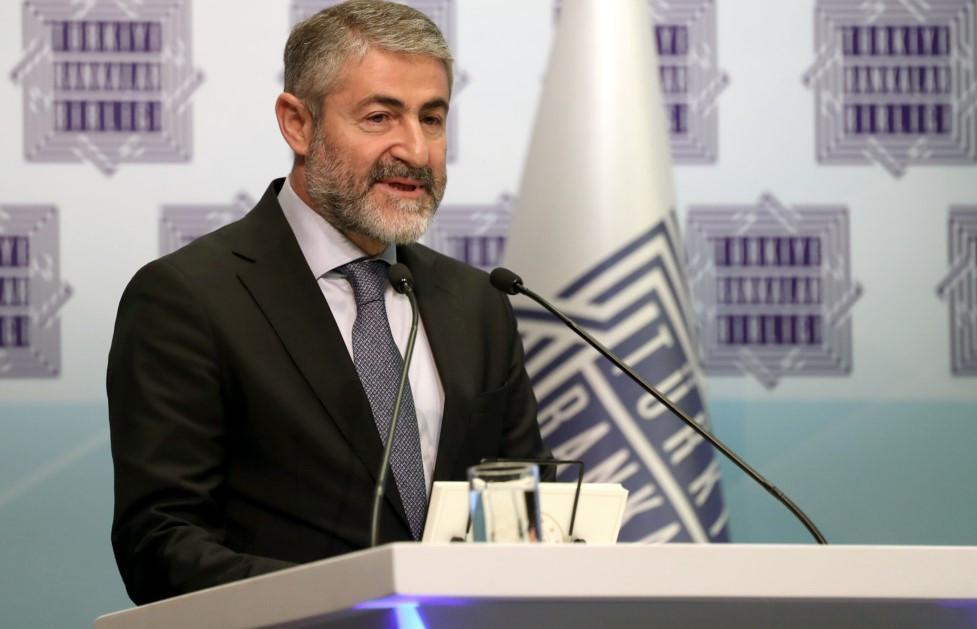
The foreign exchange-protected deposit scheme, which has been implemented to stop the rise in the dollar exchange rate and criticized for creating “risks on the budget,” will continue, Treasury and Finance Minister Nureddin Nebati has said.
Addressing the ruling Justice and Development Party’s (AKP) lawmakers in a Q&A session during the party’s “30th Consultation and Assessment” meeting in Ankara, Nebati said not implementing the model would have had a much bigger negative impact on the budget.
“As of last Friday, the total cost of the foreign exchange-protected deposits to the budget is 21.1 billion Turkish Liras,” the minister said.
“If we had not put this system into action, our loss would have been 411 billion liras,” he added.
In Nebati’s presentation, the issue of the high foreign trade deficit despite the record-breaking export figures was also brought up. It was stated that one of the biggest reasons for the high foreign trade deficit was energy imports, and the aim was to close this deficit with the help of hydroelectric power plants.
Stating that one of the government’s most important goals is to ensure a permanent decrease in inflation rates, Nebati predicted an inflation rate of 48-49 percent for the end of 2022 and 19.9 percent for the end of 2023. The minister added that neither interest rate increase nor rate cut is being considered in the short term.
Nebati also talked about the increase in housing prices, arguing that the prices are “inflated” with fake advertisements on some websites and “opportunists with this method trigger new price formations in the housing market.”
Stating that 65,000 people who manipulated the housing market with the advertisements they gave have been identified, Nebati pointed out that other homeowners also increase their prices due to false advertisements, thus creating the “artificial” price problem.
“An advertisement is put on the website, but in fact, there is no such house,” he said.
“But those who see those advertisements also increase their prices. We will hold those opportunists who want to manipulate the markets to account; we will hurt them.”
At the meeting, participants voiced their expectation that the productivity to be experienced in agriculture in the October-November period due to precipitation and the possible increase in tourism revenues will revive the markets, while it was stated that some tools could be put into effect to suppress inflation until the end of the year.
In his presentation, Nebati stated that there is a will about not reflecting possible increases in oil prices to pump prices until the end of 2022.